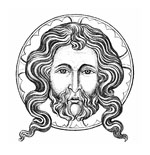
Jesus Christ, Our God of Surprises
AMAZING BUT TRUE
Two thousand years ago, Christians announced to the world that God had become man. It was an incredible claim, far beyond anything in the popular imagination. Greek and Roman deities behaved as if they were human, but Jesus of Nazareth, born from a mother’s womb and reared as a child, was human by all accounts. And there was a second stunner regarding the God-man: He rose from the dead.
Such claims are more astounding than anything that has ever rolled off the tongues of Buddhists, Muslims, or even Hindus with their belief in reincarnation. And pagans were not the only ones who were shocked. Christians, then and now, take a deep breath every time they recall some of the things Jesus said. He called those who demanded miracles from Him “evil and adulterous” (Mt. 12:39). “Few” will be saved, He warned (Mt. 7:14), and those who die in their sins will burn in Hell for all eternity.
Such teaching is hard to reconcile with the mercy Christ showed to a woman caught in adultery (cf. Jn. 8:1-11). The man who forgave His crucifiers (cf. Lk. 23:34) bears little resemblance to the man who hurled more “woes” at sinners than any of the Old Testament prophets (cf. Mt. 23:13-36). What Isaiah prophesied had come to pass: Jesus used His tongue as a “rod” (Isa. 11:4), denouncing the religious elite of His time as “hypocrites,” “whited sepulchers,” and “a brood of vipers” (Mt. 23:23, 27, 33).
The God-man who characterized Himself as tough in His “master” parables, who silenced the Pharisees and Sadducees (cf. Mt. 22:34, 46), and whose countenance caused an entire cohort of Roman soldiers to fall to the ground (cf. Jn. 18:6) is the same individual who took delight in children, described Himself as meek, and displayed a divinely outlandish sense of humor. Walking across the Sea of Galilee on one occasion, He drew even with the boat His Apostles were rowing and would have passed it without saying a word had they not called out in fear, thinking they were seeing a ghost (cf. Mk. 6:48-49).
Similarly, after rising from the dead and approaching two of His disciples on the road to Emmaus, He concealed His identity and asked why they were so sad. “Art thou the only stranger in Jerusalem who does not know the things that have happened there in these days?” they replied. “What things?” He asked (Lk. 24:18-19) — as if He didn’t know. After mining the ore of Christ’s sternness, one is delighted to find, alongside it, a vein of mischief!
You May Also Enjoy
A favorite ploy for nonbelievers is to play off an allegedly vengeful "God of the Old Testament" against a peace-loving "God of the New." But this will not stand.
The "I'm too catholic to be Catholic" line of argumentation falls to a subjectivity or "lowest common denominator" critique.
Short-selling the Old Testament is regrettable. The Church of Rome has always been clear that the New Testament doesn’t supersede the Old.

